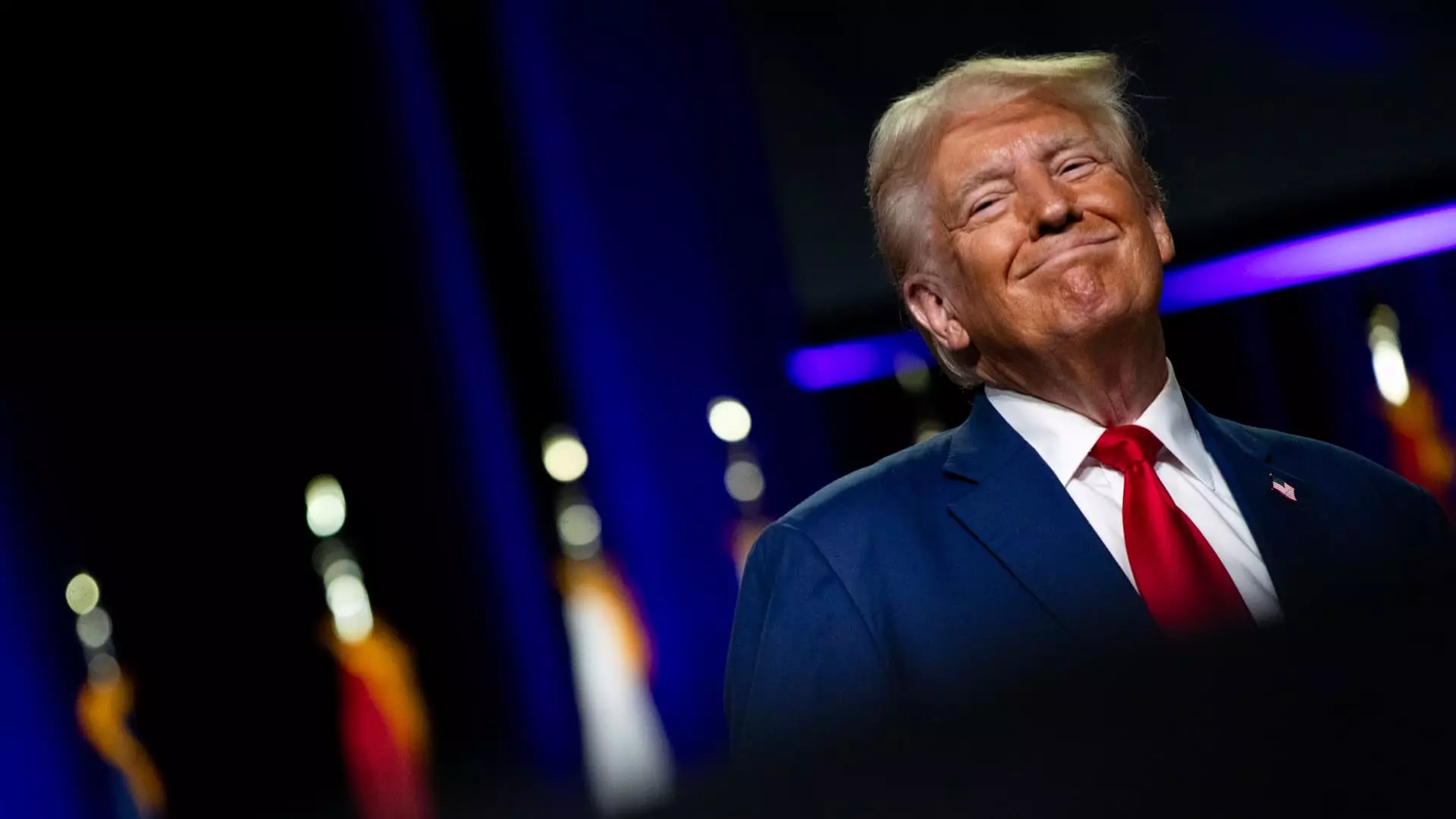The political landscape in America is increasingly intertwined with the ambitions of the technology sector, particularly as major CEOs pivot to align themselves with President Trump’s administration. Notably, Mark Zuckerberg of Meta and Jeff Bezos of Amazon find themselves in an unusual position as they seek goodwill from a leader who has previously wielded sharp critiques against them. Meanwhile, OpenAI’s Sam Altman is embroiled in a contentious legal battle with Elon Musk, amidst a backdrop of political maneuvering that raises questions about influence and allegiances in a rapidly evolving technological environment.
The relationships between high-profile tech leaders and Donald Trump paint a picture of complex sentiments. Historically, Trump has targeted giants like Amazon and Meta with harsh rhetoric, criticizing Bezos for tax implications linked to his ownership of The Washington Post, and targeting Zuckerberg with derogatory remarks via his favored social media platform. This antagonism makes the recent announcements regarding substantial donations to Trump’s inauguration fund particularly noteworthy. Both Amazon and Meta confirmed contributions of $1 million, a move that appears to be born from a desire to foster a more amicable relationship with the incoming administration, despite the strained past.
Altman’s $1 million donation marks a significant gesture of support for Trump. He expresses ambition for the administration to lead in artificial intelligence, a sector that holds profound implications for the future economy and social structure. It’s somewhat paradoxical that leaders of companies often criticized by Trump now seek to align themselves with him. The political pragmatism embedded in these donations suggests a keen awareness of the collaborative potential between tech and government, even when historical tensions loom large.
As Trump’s administration embraces the potential of AI, the irony is palpable. The very figure who labeled tech companies as monopolistic oppressors is now poised to lead initiatives that could greatly influence this burgeoning field. Appointing Gail Slater—who advised Trump during his first term—to oversee the Department of Justice’s antitrust arm signals that the administration is poised to intensify scrutiny of Big Tech. This could turn the tables, as the same companies now offering financial support may soon find themselves in the crosshairs of antitrust investigations.
Trump’s past statements on tech have ranged from criticism of Bezos for allegedly undermining the United States Postal Service to accusing Zuckerberg of bias against conservative perspectives. These assertions resonate deeply with certain voter bases, heightening tensions around technology, information dissemination, and the power of liberal ideologies in large corporations. The donations from Meta and Amazon can thus be viewed through a lens of strategic positioning in a potentially hostile regulatory future.
Moreover, the legal conflict between Altman and Musk concerning OpenAI epitomizes the complexities within the tech world itself. The chasm that has developed between the two co-founders speaks to broader themes of control and competition in the AI industry. Musk’s substantial support for Trump’s campaign, along with his proposed role in “Department of Government Efficiency,” raises concerns about potential favorable treatment for his ventures, including Tesla and SpaceX, in upcoming regulatory frameworks.
The dichotomy between Musk’s ambition to harness AI’s capabilities and the newly dubbed “government efficiency” presents a precarious balance. While Altman already expressed a willingness to support Trump’s focus on progressive AI development, his apprehensions about Musk’s influence elucidate the high stakes at play. The confluence of personal interests, corporate ambitions, and political agendas could redefine the regulatory landscape, not just for AI but for the tech industry at large.
Now, as Trump re-establishes his foothold in American politics, tech leaders from diverse companies have begun to shift their tones, with many—such as Apple’s Tim Cook and Google’s Sundar Pichai—offering congratulations to the incoming president. This pivot demonstrates an acute awareness of the necessity to navigate these relationships carefully, even in the face of past criticisms. The partnership with governmental structures offers both risks and opportunities; thus, tech leaders must engage with heightened scrutiny and considerations of long-term ramifications.
The interplay between technology and politics is becoming increasingly intricate as leading figures strive to reshape their narratives in the light of evolving political climates. The donation strategies and shifting alliances symbolize more than mere financial support; they highlight the profound understanding these leaders possess of the consequential relationship between governmental policy and technological innovation. How they manage their ambitions while appeasing or opposing political infrastructures will significantly impact their trajectories—as well as the broader tech landscape—in the years to come.

